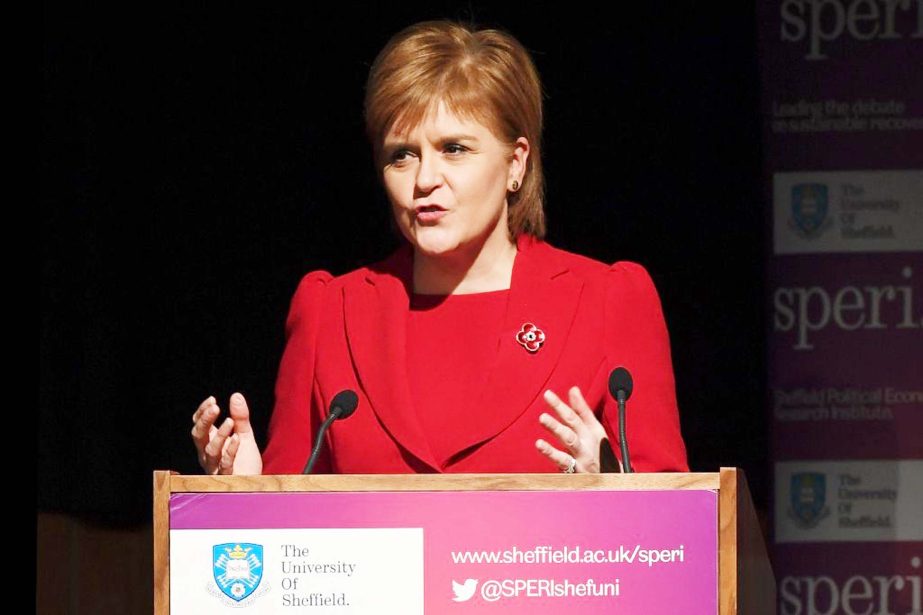
AFP, Edinburgh :
First Minister Nicola Sturgeon unveiled plans Tuesday for Scotland to stay in the EU’s single market after Brexit but said she would prefer the country to be an independent state within the bloc.
Sturgeon said Britain’s June referendum decision to leave the European Union meant semi-autonomous Scotland could demand more powers from London over immigration.
Scottish citizens voted strongly in favour — 62 percent to 38 percent-of staying in the EU, opening up a divide with the British government, which has pledged to exit, come what may.
“We are determined to maintain Scotland’s current position in the European Single Market,” Sturgeon said in the introduction to a paper containing the proposals, entitled “Scotland’s Place in Europe”.
A “differentiated option”, such as the rules that apply to non-EU members of the European Free Trade Association (EFTA) and the European Economic Area (EEA), could apply to Scotland.
“The Scottish people did not vote for Brexit and a ‘hard Brexit’ would severely damage Scotland’s economic, social and cultural interests,” Sturgeon said, adding that 80,000 Scottish jobs were at risk if Britain were to leave the single market.
Iceland, Liechtenstein, Norway and Switzerland are in EFTA and the first three are also part of the EEA, which provides free movement of persons, goods, services and capital within the single market.
British Prime Minister Theresa May later told a parliamentary committee that the government would “look very seriously” at the proposals but warned there could be some that were “impractical”.
“If Scotland were to become independent, then not only would it no longer be a member of the European Union, it would no longer be a member of the single market of the European Union and it would no longer be a member of the single market of the United Kingdom.
First Minister Nicola Sturgeon unveiled plans Tuesday for Scotland to stay in the EU’s single market after Brexit but said she would prefer the country to be an independent state within the bloc.
Sturgeon said Britain’s June referendum decision to leave the European Union meant semi-autonomous Scotland could demand more powers from London over immigration.
Scottish citizens voted strongly in favour — 62 percent to 38 percent-of staying in the EU, opening up a divide with the British government, which has pledged to exit, come what may.
“We are determined to maintain Scotland’s current position in the European Single Market,” Sturgeon said in the introduction to a paper containing the proposals, entitled “Scotland’s Place in Europe”.
A “differentiated option”, such as the rules that apply to non-EU members of the European Free Trade Association (EFTA) and the European Economic Area (EEA), could apply to Scotland.
“The Scottish people did not vote for Brexit and a ‘hard Brexit’ would severely damage Scotland’s economic, social and cultural interests,” Sturgeon said, adding that 80,000 Scottish jobs were at risk if Britain were to leave the single market.
Iceland, Liechtenstein, Norway and Switzerland are in EFTA and the first three are also part of the EEA, which provides free movement of persons, goods, services and capital within the single market.
British Prime Minister Theresa May later told a parliamentary committee that the government would “look very seriously” at the proposals but warned there could be some that were “impractical”.
“If Scotland were to become independent, then not only would it no longer be a member of the European Union, it would no longer be a member of the single market of the European Union and it would no longer be a member of the single market of the United Kingdom.

